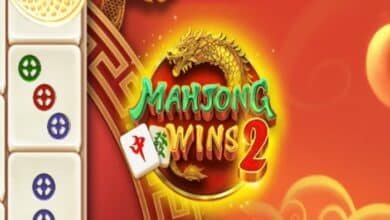What Your Favorite Hobby Says About Your Personality – Science-backed or Just for Fun?

People have always been curious about what hobbies reveal about someone’s character. There’s no shortage of online quizzes claiming they can guess your personality based on what you do in your free time. Some of these claims are grounded in research. Others? Not so much. But the topic is worth exploring, especially when you mix in a little skepticism and an open mind. You might even be tempted to click here before diving deeper into the conversation.
Why hobbies might reflect personality
Hobbies are chosen, not assigned. That alone makes them interesting to psychologists. If you spend your weekends painting, running, or learning a new language, it suggests something about what you value and how you like to spend your energy.
Some studies show correlations between certain traits and certain activities. Extroverts often prefer group-oriented hobbies—team sports, acting, volunteering. Introverts might lean toward solitary or small-group pastimes like writing, gardening, or reading. Of course, this isn’t a strict rule. People’s preferences shift depending on life stage, culture, and even who they spend time with.
The social layer
One reason hobbies are tied to personality is the role of social interaction. Activities that involve others can shape how we communicate and collaborate. Someone who thrives in a chess club might have a strategic, patient approach to problem-solving. A person drawn to hiking groups might enjoy shared experiences but also value nature and quiet moments.
The reverse can happen too. Picking up a hobby can change how you interact with people. A shy person who starts doing improv might become more confident in everyday conversations.
Skill development and identity
Hobbies often become part of identity because they involve learning and skill. Whether it’s cooking, woodworking, or dancing, there’s usually progress over time. This sense of improvement reinforces the connection between the activity and how we see ourselves.
It’s also why people can feel lost when they have to give up a hobby—due to injury, lack of time, or other life changes. It’s not just about losing the activity; it’s about losing a part of their self-definition.
Science vs. pop psychology
Science-backed claims about hobbies and personality usually come from large surveys or long-term studies. They look for patterns, not absolute rules. The findings tend to be cautious. For example:
- People who enjoy high-adrenaline activities often score higher in sensation-seeking traits.
- Those who engage in arts-related hobbies tend to be more open to new experiences.
- Long-term participation in physical activities is sometimes linked to higher levels of self-discipline.
Pop psychology, on the other hand, can overstate these connections. Articles might say things like, “If you knit, you’re definitely a patient person.” That’s tidy and fun, but not always true. People are more complicated than one hobby.
Cultural influence
It’s also important to remember that hobbies don’t exist in a vacuum. What’s common in one culture might be rare in another. In some places, playing music might be a widespread pastime, meaning it doesn’t say much about personality. In others, it might be unusual and signal something about the person’s background or opportunities.
Globalization and the internet have blurred some of these lines. Now you can join an online group for almost any interest, which changes how hobbies are shared and perceived.
Why the topic stays interesting
Part of the appeal is curiosity. We like finding shortcuts to understanding people, even if they’re imperfect. Asking “What do you do for fun?” in conversation is more than small talk—it’s a way to open a window into someone’s life.
Another reason is that hobbies are one of the few things we choose without much external pressure. Jobs, family roles, and education often come with obligations. Hobbies are voluntary. That makes them feel more “authentic” as personality clues.
A note of caution
It’s easy to overinterpret. Two people can enjoy the same activity for entirely different reasons. One might run for fitness, another for stress relief. One might play video games to connect with friends, another for the challenge. Without context, assumptions can mislead.
Also, people experiment. Trying a hobby for a month doesn’t necessarily mean it defines you. Sometimes it’s just curiosity.
The takeaway
Your favorite hobby might offer hints about your personality, but it’s not a definitive label. Research suggests patterns, not absolutes. The best use of this idea is as a conversation starter or a way to reflect on why you enjoy what you do.
In the end, hobbies are about enjoyment, growth, and connection. If they also reveal something about you, that’s a bonus—but not the whole story.





